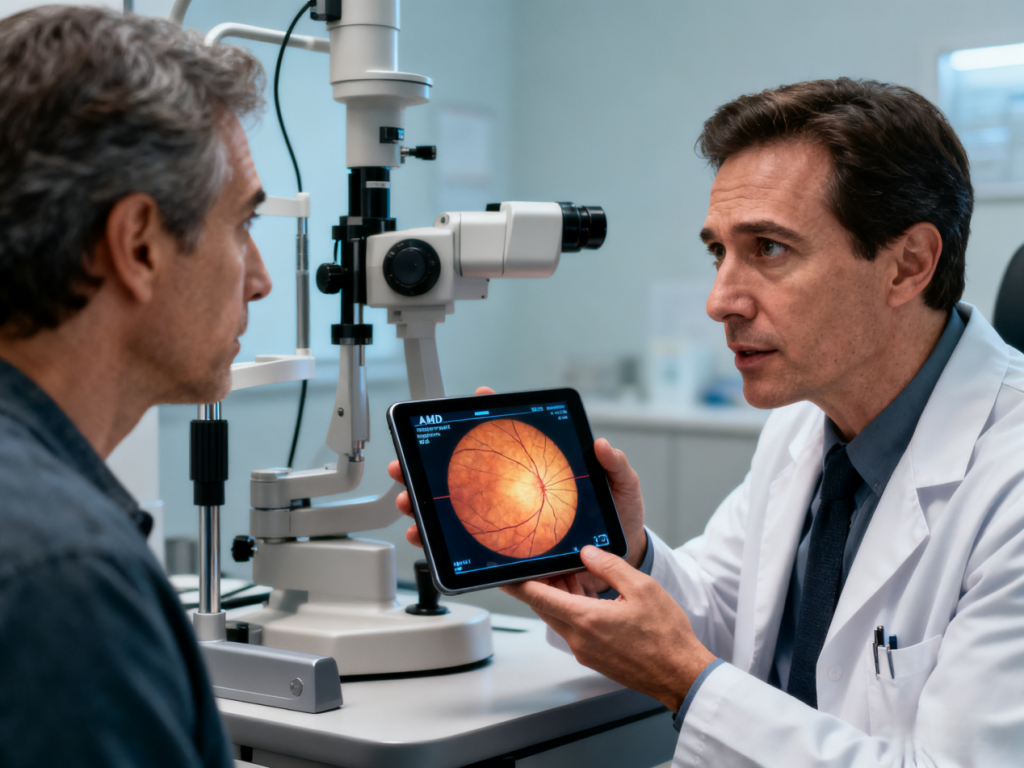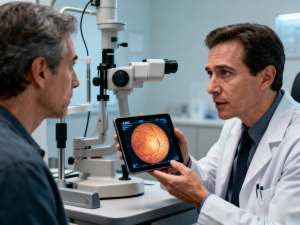
Macular degeneration is a prevalent eye condition and a leading cause of vision loss, primarily affecting individuals over the age of 60. This condition, known as age-related macular degeneration (AMD), damages the macula—the central part of the retina responsible for sharp, detailed vision. While there is currently no cure, early detection and proactive management can significantly help preserve eyesight and slow its progression. Key early symptoms often include blurred vision, visual distortions (such as seeing straight lines as wavy), and difficulty seeing in low light. Regular comprehensive eye exams are essential for early diagnosis, especially for those at higher risk. Although it’s not possible to completely prevent AMD, maintaining a healthy lifestyle—including a diet rich in leafy greens, fish, and eye-healthy vitamins—can help support long-term retinal health.
Understanding Age-Related Macular Degeneration (AMD)
Age-related macular degeneration occurs when the macula deteriorates over time, leading to loss of central vision. There are two forms: dry AMD (more common, with gradual thinning of the macula) and wet AMD (less common, involving abnormal blood vessel growth). Knowing the type is crucial for determining appropriate treatment.
Key Symptoms to Watch For

Early macular degeneration symptoms often develop slowly. These may include:
· Blurriness in the center of your vision
· Straight lines appearing wavy or bent
· Difficulty recognizing faces
· Needing brighter light for reading
· Colors seeming less vivid
If you notice any of these signs, schedule an eye exam promptly.
Can You Prevent Macular Degeneration?
While AMD cannot be fully prevented, certain lifestyle choices can lower your risk. A nutrient-rich diet containing leafy greens, colorful fruits, and omega-3 fatty acids is beneficial. Many experts also recommend specific vitamins for macular degeneration—such as AREDS2-formula supplements—which may help slow progression in intermediate stages.
Available AMD Treatment Options
Treatment depends on the type and stage of AMD. Dry AMD may be managed with nutritional supplements and lifestyle adjustments. For wet AMD, anti-VEGF injections are commonly used to block abnormal blood vessel growth. Laser therapies may also be recommended in some cases. An eye specialist can help create a personalized treatment plan.
Take Action for Your Eye Health Today
Early detection is your best defense against vision loss from macular degeneration. If you’re over 60 or have a family history of AMD, regular check-ups are essential. Speak with an eye care professional to learn more about protecting your vision.
—
This content is for informational purposes only and is not a substitute for professional medical advice. Always consult with an eye care specialist for personalized recommendations.



